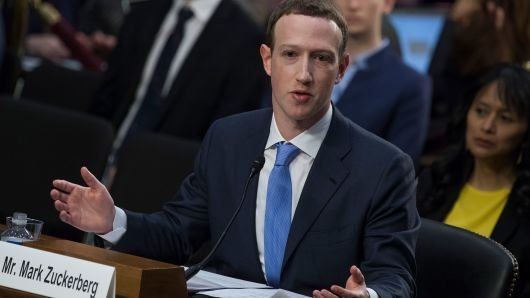Facebook share data with Huawei, Oppo ..., US national security concerns threatened
FACEBOOK REVEALED TO CONGRESS THAT THEY HAD SHARED USER DATA FOR 52 HARDWARE AND SOFTWARE COMPANIES, INCLUDING SOME COMPANIES BASED IN CHINA.

Facebook threatens to threaten national security
According to the Wall Street Journal, the information is part of a 747-page document that Facebook sent to founders. in the Committee on Energy and Trade on Friday (29/6). The Commission has publicly published the document, which aims to answer at least a portion of the many questions Mark Zuckerberg asked in his hearing not long ago.
The most important part of the kit is a list of major technology companies that Facebook has shared user information with, including Apple, Amazon, Microsoft, Qualcomm and Samsung, as well as Alibaba. of China. The BlackBerry is also on the list for some reason. Companies such as Nissan, UPS and others are also part of the program.
Also on the list of 52 companies, which attracted the attention of lawmakers, are a number of Chinese companies: Huawei, Lenovo, Oppo, and TCL. The US intelligence agencies have always shown great care for these companies, as well as their relationship with the Chinese government in the past, especially Huawei. FBI director Chris Wray has previously testified that Huawei's products provide "malicious modification or theft."
The New York Times reported that Facebook shared data with at least 60 device makers, mostly smartphone makers. Huawei is also on that list.
According to Facebook, data sharing with these companies is still taking place several months after the platform revokes developer access to the information owned by its users. Facebook has shared its name, gender, date of birth, current city, homeland, photos and sites with developers who receive special offers.
The Wall Street Journal adds, Facebook explains that data is being provided to improve the platform's performance on different platforms and devices. "Users have access to the Internet with a variety of phones, including text messaging, universal phones, and smartphones," Facebook wrote. "In that environment, internet service platforms like Facebook, Twitter and YouTube are very difficult to build versions to work on all phones and operating systems."
However, lawmakers are not entirely convinced with the explanation of Facebook. "After initial reviews, I'm afraid that Facebook's answers will raise more questions," said Congressman Frank Pallone Jr, chairman of the Energy and Commerce Committee.
upvote for me please? https://steemit.com/news/@bible.com/2sysip
nice great work buddy
keep supporting!!
https://steemit.com/mgsc/@rajatgaur/russia-s-first-crypto-investment-bank
interesting information brother thanks for sharing this keep posting and keep supporting :)